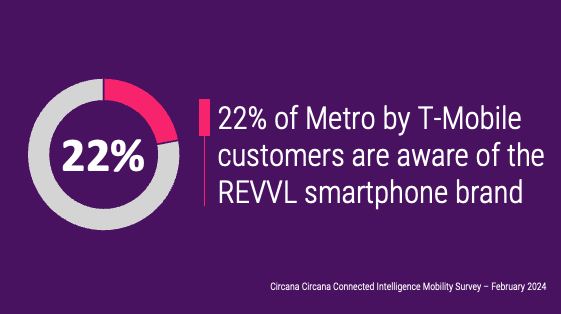
Metro goes Uncarrier with Flex
Metro by T-Mobile last week shook up the prepaid world with the debut of its new Flex plan program, which essentially allows customers to receive free and/or discounted device upgrade offers based on tenure with the carrier. Customers subscribing to the Flex program will receive a free low-tier 5G phone or a discounted higher-tier model (such as the $99 iPhone 12 or $99 Motorola Razr), and once they complete their first year of service, the consumer will be eligible for a free phone replacement or a discounted offer on a better device with the trade-in of their existing phone. The Flex plans come in three options:
- Start plan at $50/month
- Up plan at $60/month
- Plus plan at $70/month
All three plans come with unlimited data (throttled after 35 GB of usage) as well as 8 GB or 25 GB of mobile hotspot data depending on the plan. Incidentally, Metro also offers 100 GB of Google One cloud subscription and one-year free subscription to the VIX Premium with all three plans. The top-tier Plus plan also includes free Amazon Prime membership.
Metro’s so-called first “Uncarrier” prepaid move also highlighted the debut of the new REVVL 7 series, which includes the new REVVL 7 5G and 7 Pro 5G. Metro promotes these phones with a free device charger and life-time limited warranty.
The Circana Take:
- Metro by T-Mobile’s new Flex program addresses a major pain point for prepaid customers as it allows them to take advantage of attractive trade-in upgrade offers in return for their loyalty with the carrier. Many prepaid customers looking for a device upgrade consider switching to a new prepaid provider to take advantage of the newcomer device offers. These new plans will surely help Metro reduce churn, though the trick will be convincing customers to upgrade to Flex plans.
- The Flex plans are $10/month more expensive than Metro’s previous plans that started at $40/month with unlimited data (similarly throttled at 35 GB/month). Metro still offers the $40/month plan, though the high-speed allotment is now reduced to only 10 GB/month. At the new rates that range between $50 and $70 per month, Metro by T-Mobile is practically competing in the postpaid price league. It is important to remember that T-Mobile has been gradually migrating over 600K good-credit Metro prepaid customers over to the postpaid Magenta side each year, thus Flex will have a limited target base to go after within Metro.
- The Flex program builds on T-Mobile’s “smartphone equality program,” which offers customers with good payment history (with the carrier) access to device financing when they switch over from Metro to the magenta postpaid side. With Flex becoming Metro’s lead offering, we should expect to see a notable drop in the number of Metro customers switching over to the T-Mobile postpaid side in the coming quarters.
- To avoid customers jumping ship before they contribute enough for Metro to recuperate the device subsidy, the carrier has now raised the device unlocking term from six months to 12 months. The extended unlocking term will not alienate most users as Flex is a loyalty rewarding program and subscribers are likely stay put to take advantage of the program benefits. The timing of the change in the unlocking policy is strategic as it followed FCC’s approval of the Mint Mobile acquisition. Notably, T-Mobile was under pressure by multiple consumer-rights groups that were trying to force T-Mobile’s hand with its device locking practices in return for the FCC approval.
- Metro’s new Flex program, despite being expensive, will put extra pressure on Verizon, whose value brands like StraightTalk, Total and Tracfone suffer greatly from the FCC’s device unlocking enforcement. Verizon and all its subsidiaries are required to unlock the phones they sold within 60 days; thus, they cannot compete with rivals like Metro and Cricket on device promotions.
- T-Mobile’s debut of the new REVVL 7 lineup alongside the new Metro Flex plans was a good marketing move to highlight all the add-ons that are typically not common in this device tier. The REVVL’s lifetime limited warranty is certainly a differentiator, but it is more of a statement since the new Flex program is designed to foster faster upgrades (meaning users on the Flex plan will not need the lifetime warranty). The free charger offer is also a unique statement, in fact this is literally a statement because the phone does not come with a free charger brick in the box. Users who need a new charger brick can contact Metro and request one free of charge. These small touches further solidify REVVL’s positioning as the industry leading carrier white-label brand, but the challenge to compete against Samsung’s free A10 series models remains unchanged.